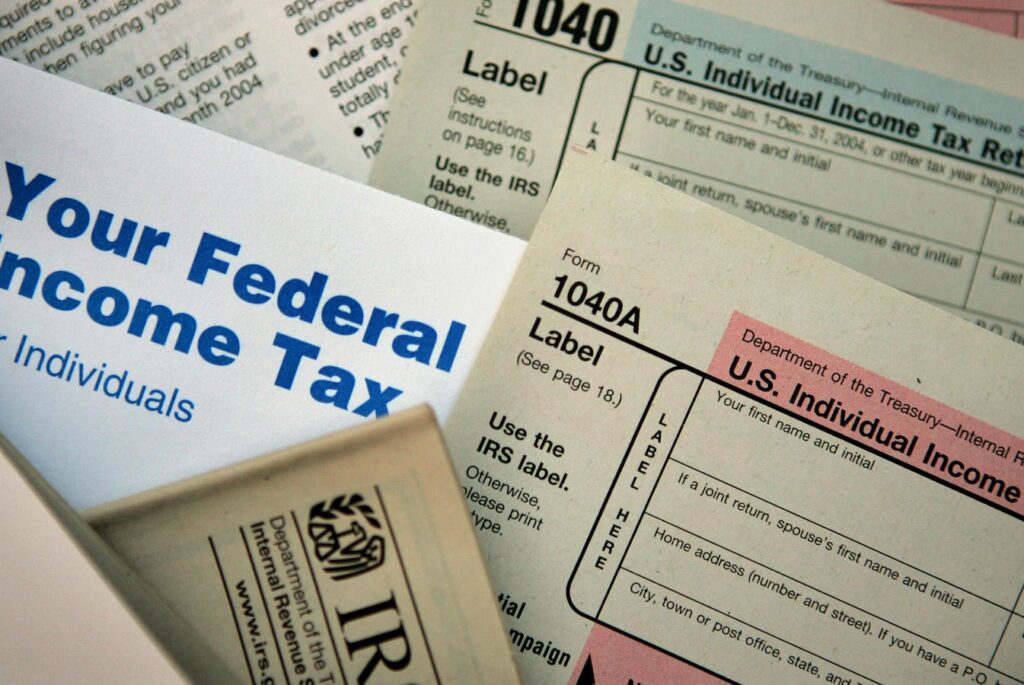Well, folks, we did it. Or more accurately, they did it. Our nation’s Certified Public Accountants (and other tax return preparers)—those brave souls fluent in the ancient language of Schedule Cs and 1099s—have once again made it through tax season with their sanity mostly intact and only minimal crying in supply closets.
Let us take a moment to thank these unsung heroes of April now that many of them have returned to their office following a two week vacation. While the rest of us were panicking over whether that dog-walking side hustle counted as self-employment (it does), CPAs were calmly navigating the Byzantine maze of the Internal Revenue Code, which, let’s be honest, makes IKEA instructions look rudimentary and easy.
The Code: A Kafkaesque Novel Written in Legalese
Let’s talk about the Internal Revenue Code, aka the IRS’s cookbook of suffering. It’s over 70,000 pages long with its corresponding explanatory Treasury Regulations. That’s longer than the Harry Potter series, Game of Thrones, and War and Peace combined—with less magic and more audit threats.
Inside this monstrous tome are rules about rules, exceptions to exceptions, and provisions so mind-bendingly convoluted they make the Matrix seem like a basic algebra class. There’s an entire section that dictates how to depreciate a racehorse over three years (true story), but try finding a simple explanation of whether your crypto losses offset your W-2 income. Go ahead. We’ll wait.
CPAs, however, eat this spaghetti code for breakfast. They don’t flinch when the IRS decides that a home office deduction requires a degree in architectural drafting and the patience of a saint. They smile politely when we bring them shoeboxes of receipts, sticky notes, and a half-eaten protein bar with “Tax Stuff?” scrawled on it.
The Clients: Clueless, Confused, and Occasionally Crying
To be a CPA during tax season is to endure more oddball client confessions than a bartender during happy hour. “So, I got paid in crypto for selling NFTs of my cat’s facial expressions, but I also drove for Uber in the evenings, and my mom pays me $50 a week to water her succulents—do I need to file a Schedule K?”
Bless their number-loving hearts, CPAs don’t even blink. They nod thoughtfully, adjust their glasses (all CPAs are issued glasses, whether they need them or not—it’s part of the oath), and proceed to turn that steaming pile of financial confusion into a coherent return that hopefully won’t get you flagged by the IRS’s Robocop-auditor algorithm.
The Tools of the Trade: Coffee, Spreadsheets, and Quiet Despair
From January to mid-April, CPAs exist in a caffeine-fueled dimension where weekends are theoretical and sleep is just something that happens to other people. Their world is color-coded in Excel, and they can recite deduction limits like lullabies. They dream in form numbers. “Sweet dreams, Form 1040. Nighty night, Schedule E.”
During tax season, their social lives vanish, their families leave snacks outside their home office doors like they’re feeding a raccoon, and their only human contact is the client who emails “Just one more quick thing!” at 11:58 PM on April 14th.
The Post-Tax Season Recovery Protocol
Once the deadline passes, CPAs emerge, blinking into the sunlight like groundhogs who’ve been doing QuickBooks in the dark for four months. They walk outside, unsure of what day it is, and rediscover the joy of grass, birdsong, and not having to explain “Why you can’t write off your dog as a dependent” for the 19th time in a week.
Some celebrate with a well-deserved spa day. Others collapse into a couch and binge-watch Netflix until their brains reboot. There are rumors of one CPA who retired and opened a goat sanctuary. Frankly, it tracks.
We Owe Them—Big Time
The truth is, we should be thanking CPAs like we thank firefighters, teachers, and baristas who can spell our names right on the first try. Without them, we’d all be buried in late penalties, drowning in IRS jargon, and wondering if we can pay our taxes in leftover Bed Bath & Beyond coupons.
CPAs protect us from audits, help us find deductions we didn’t know existed (hello, energy-efficient water heater!), and often act as part financial advisor, part therapist, and part detective. They are the Watson to our tax-based Sherlock meltdown.
So next time you see a CPA, buy them a coffee. Or a whiskey. Or maybe just give them a long, respectful nod, like two war veterans recognizing each other across a crowded room.
Because tax season may be over (unless to filed for an extension), but the trauma lives on.
Read the full article here

